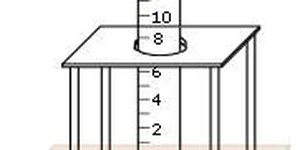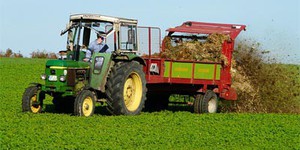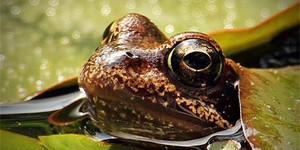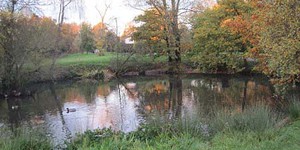Others Like “Do Plants Promote Pesticide Breakdown?” (top 20 results)
|
Foundations for many types of structures rest on soil. This project shows how you can investigate the bearing capacity of different types of soil.
Read more
Divide a part of your garden into two equal plots, with each plot receiving equal amounts of sun. Cover one plot with two inches of organic mulch, such as compost or ground bark. Leave the other plot uncovered. Use the same amount of water for each plot for two or three weeks. At the beginning of the experiment, and at one-week intervals, dig down and check the soil in each plot for moisture content. Which plot holds water better? Which plot shows better plant growth? (McCausland, 2006)
Read more
Many people routinely use fertilizer for crops, gardens, and lawns. What people don't know is that each time they apply fertilizer, the fertilizer seeps through the soil into the water table. This can eventually lead to the contamination of a local water source, like a stream, pond, lake, bay, or ocean. This is an especially big problem for agricultural practices that frequently use large amounts of fertilizer on fields that are connected by irrigation channels. The run-off of fertilizer…
Read more
Soils are made of particles of different types and sizes. The space between particles is called pore space. Pore space determines the amount of water that a given volume of soil can hold. Porosity is the percentage of the total volume of soil that consists of pore space. Compare the porosity of different types of soil. Which types of soil hold the most water? Can you see this under a microscope?
Read more
Soil may look like a bunch of dirt, but good quality soil is actually a complex mixture of dirt, nutrients, microorganisms, insects and worms. What type of benefit do these microorganisms offer a growing plant? You can test this by baking soil in the oven to sterilize and kill the microorganisms. Do plants grown in sterile soil do better than plants in unsterilized soil? What about adding worms to one plant, but not to the other. Will the plant with worms grow better? Some insects are bad…
Read more
Have you ever heard the expression "a canary in a coal mine"? In the 1900's and earlier, coal miners brought canaries with them into the mines to act as early warning signals. The canaries were very sensitive to low levels of dangerous gases, so if the birds stopped singing, or got sick, then the miners knew to leave immediately, even if they felt fine. As it turns out, our froggy friends are also very helpful at signaling problems, not in mines, but in and around bodies of water. Try this…
Read more
Did you know that when you use fertilizer in your garden, it can eventually reach a lake, stream, or pond? There are many different chemicals present in fertilizers. How will they affect the aquatic organisms in the ecosystem? In this science project you will get to find out!
Read more
A siphon is a handy device for emptying out a liquid reservoir that has no drain. For example, they're great for cleaning fish tanks. An interesting aspect of a siphon in action is that the liquid flows "uphill" for a portion of its journey through the tube. This project asks the question, is there a maximum height for that uphill part of the siphon?
Read more
Block off one-third of a soccer net with a cone, 5-gallon bucket or some other suitable object. Shoot into the smaller side from a set distance, but systematically varying the angle to the goal line. Take enough shots at each angle to get a reliable sample. How does success vary with angle? For a basic project: How do you think your success rate will vary with angle? Draw a conclusion from your experimental results. A bar graph showing success rate at different angles can help to…
Read more
Mowing the lawn is hard work, especially on a warm day. Not only do you have to mow the grass, but you also have to dispose of the clippings. Some people add the clippings to a compost pile in their yard, which is a great idea. But did you know that some grasses can be used as a source of energy? In this energy science fair project, you will learn more about a type of energy called biomass energy. You will grow different kinds of grasses and see which type of grass gives you the most biomass,…
Read more
|
Explore Our Science Videos
Ion Wind Rotor V2
Why Do Apples and Bananas Turn Brown? - STEM activity
Making Shadow Puppets – STEM Activity











